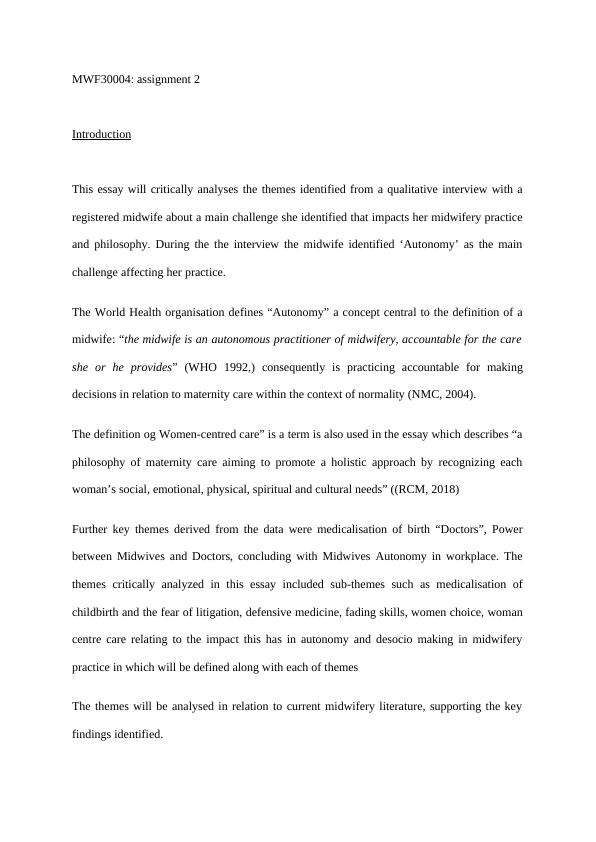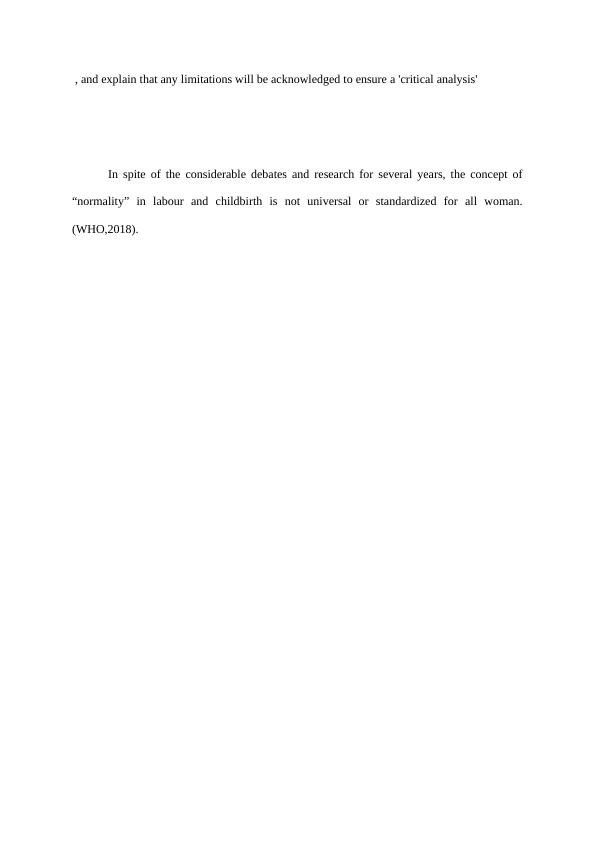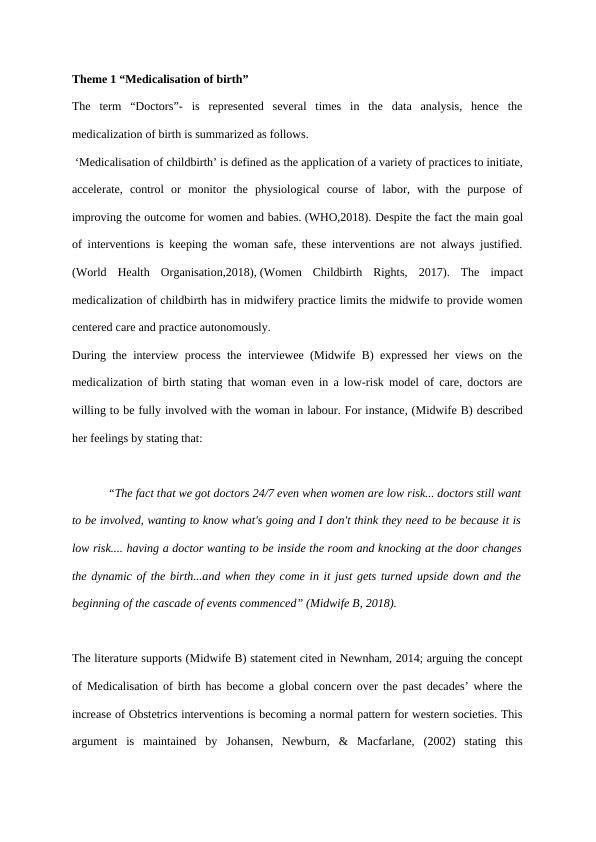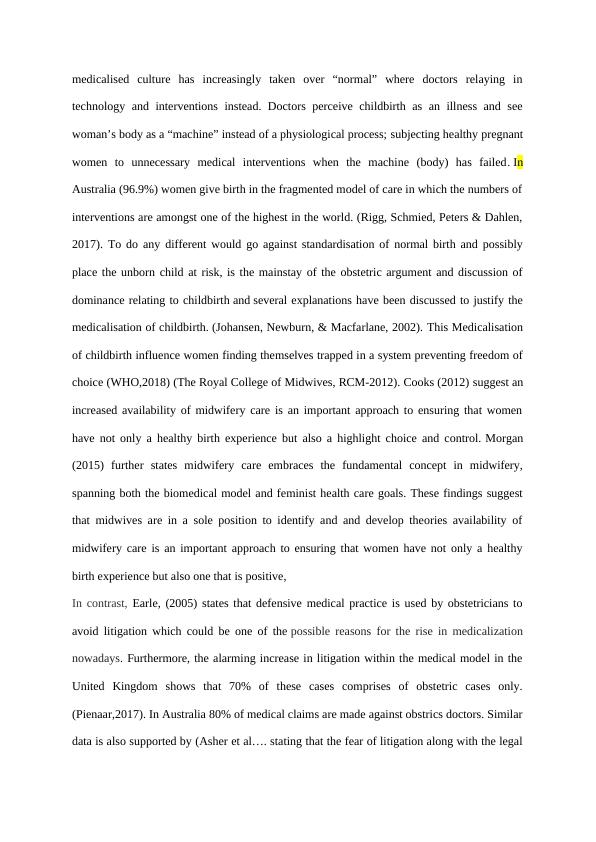Autonomy in Midwifery Practice: Challenges and Themes
This essay critically analyses the themes identified from a qualitative interview with a Registered midwife about a main challenge she identified that impacts her midwifery practice and philosophy.
17 Pages4542 Words172 Views
Added on 2023-06-04
About This Document
This essay critically analyses the themes identified from a qualitative interview with a registered midwife about a main challenge she identified that impacts her midwifery practice and philosophy. The themes include medicalisation of birth, midwives autonomy, and power balance. The essay discusses the impact of these themes on midwifery practice and the need for recognition of each other's expertise.
Autonomy in Midwifery Practice: Challenges and Themes
This essay critically analyses the themes identified from a qualitative interview with a Registered midwife about a main challenge she identified that impacts her midwifery practice and philosophy.
Added on 2023-06-04
ShareRelated Documents
End of preview
Want to access all the pages? Upload your documents or become a member.
Role Of The Midwife Health And Social Care Essay
|10
|2537
|231
Importance of Informed Consent and Birth Plans in Midwifery Practice: A Reflective Essay
|7
|1723
|446
Critical Analysis of Queensland Maternity and Neonatal Clinical Guideline for Normal Birth
|12
|3544
|379
Midwifery Nursing
|7
|1314
|325
Pharmacology, Medication, and Screening for Midwives
|13
|3600
|108
Women Centred Care: Concept Map and Essay
|6
|891
|55




